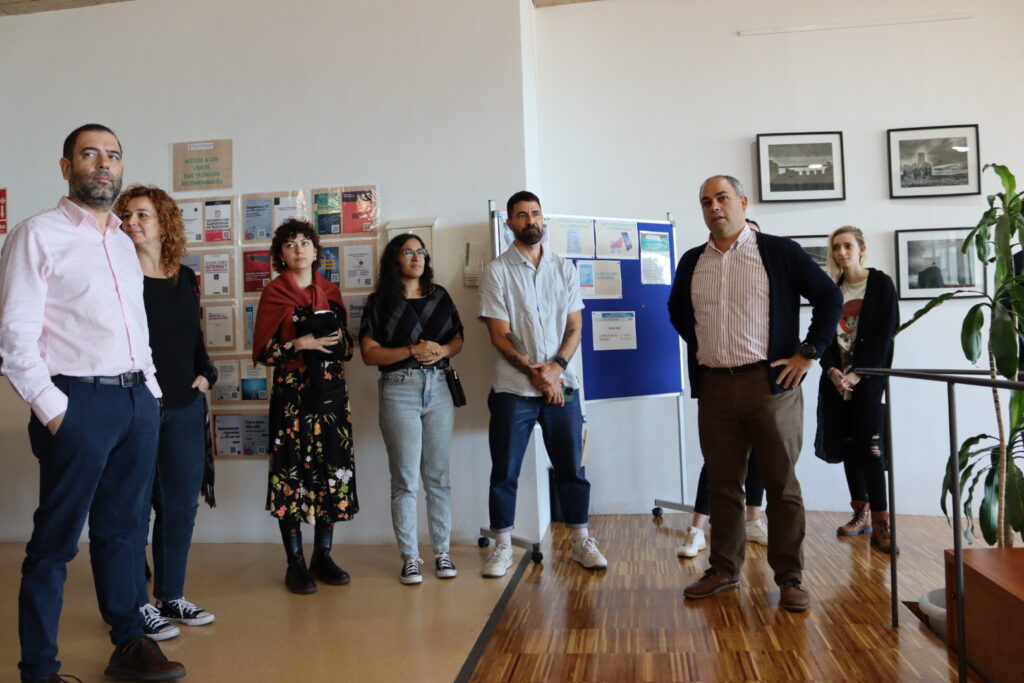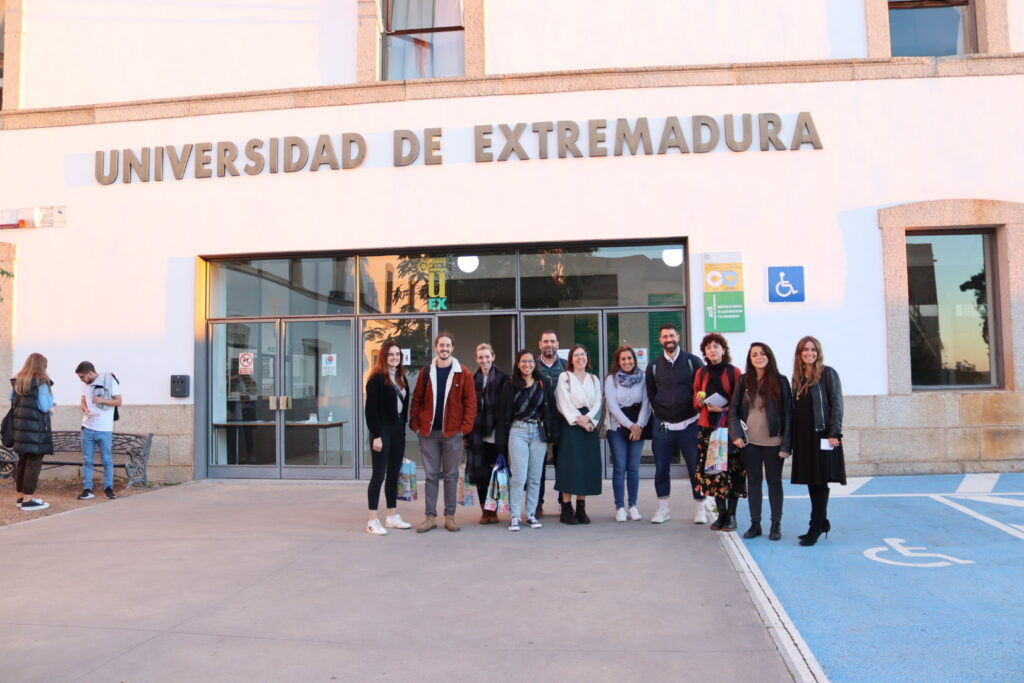The University of Extremadura has hosted the international meeting of the European partners participating in the Play/Act project on November 10th and 11th. The objective was to evaluate the result obtained in the first activity: ‘Mapping and Community Engagement’. This has been the second international meeting that has been carried out with the representatives of the entities: The University of Évora (Portugal), the University of Extremadura (UEx) and the Junta de Extremadura (Spain), Materahub (Italy), KÉK – Hungarian Contemporary Architecture Centre and Community Impact (Portugal).
The University of Évora received the chosen students to do this activity that arrived from the four countries participating in this initiative, which is financed by the Erasmus + program of the European Union: Portugal, Spain, Italy and Hungary. The students met in the City of Évora on the 8th and 9th of November to carry out this first training workshop, where, furthermore, they were able to get to know each other for the first time and they carried out the relevant activities, such as mapping in placemaking.
The meeting took place in the city of Badajoz and began with a visit to the faculty guided by the Teaching Secretary, Javier Trabadela. The location of the Faculty of Documentation and Communication Sciences in the old Badajoz Military Hospital was the result of an agreement between the Junta de Extremadura, the Badajoz City Council and the University of Extremadura, in order to contribute to the recovery of one of the most degraded areas of the city at the end of the 20th century. Javier Trabadela has highlighted the reuse of this building due to the objective of the project, which is that young people actively participate in improving the environment.

Once gathered, the different countries have put on the table the first perceptions of the students and the participants in Play/Act. The most striking thing has been the great involvement of young people in the project, and their enthusiasm with the project. However, one of the challenges is finding gaps in the agenda that do not affect their academic performance.
The teachers and students belong to different disciplines: visual and multimedia arts, design, architecture, sociology, sports… However, they have managed to complement each other in different areas, and all have shown great interest and great involvement in the project. “Each group has something different to offer” assured Leonel Alegre, coordinator member of the University of Évora, one of the entities that is involved in this project.
Once they have put the results of this first activity on the table, they have begun with the preparations for the new training activities for the students.
More information about this project and the cities that will get changed by social and urban revitalization is available at https://playact.eu/.

